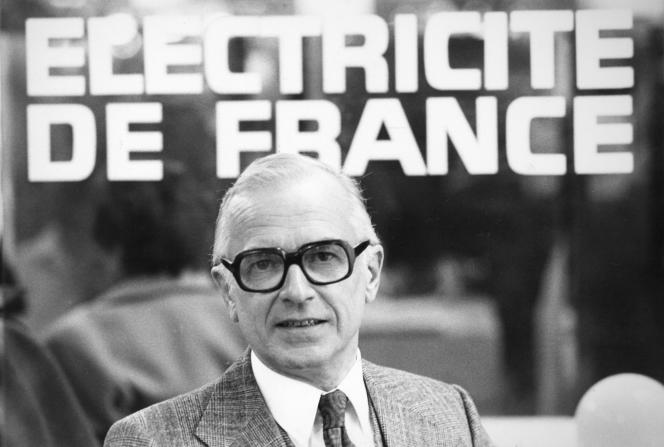A few rare bosses leave an almost indelible mark on the company they managed, to the point of identifying with it and remaining, decades after their departure, a reference, and even an object of reverence. Marcel Boiteux, who died in Paris on September 6, at the age of 101, was one of them. He will remain “the” historical leader of Electricité de France (EDF), of which he was managing director from 1967 to 1979, during the deployment of the electro-nuclear program, then president until 1987.
Born on May 9, 1922, in Niort, into a family with polytechnicians and normaliens, he naturally “fell” into science, after distinguishing himself during the Second World War. After the Ecole Normale Supérieure and the mathematics aggregation, in 1946, the assistant to the economist Maurice Allais at the Ecole des Mines in Paris wanted to pursue a career as a researcher and academic. Like his fellow student Gérard Debreu, he applied for a Rockefeller scholarship to complete his training in the United States. Unfortunately, there is only one and the draw favors the future 1983 Nobel Prize in Economics. Mr. Boiteux will remain in France.
In 1949, he joined EDF, created three years earlier, as director of economic studies. In a France that is beginning its reconstruction, the new company then takes on a crucial importance: to offer a modern pricing system for many types of customers, from the electro-intensive industrialist to the individual. In 1967, Pierre Massé, former Planning Commissioner and president of EDF, pushed for the appointment of Mr. Boiteux to general management. He will sign the first “program contract” with the State shareholder, which sets objectives for him, leaving him some autonomy to achieve them.
One of its missions is to develop nuclear energy, which is embryonic for the French electrician. In the 1960s, the “war of the sectors” raged with the Atomic Energy Commission, and within the electricity group itself: on one side, the French natural uranium-graphite-gas technology, known as “UNGG » ; on the other, that of enriched uranium-pressurized water from the American company Westinghouse, which has proven itself across the Atlantic. Mr. Boiteux was one of those who convinced General de Gaulle and his Prime Minister Georges Pompidou, in 1969, to abandon the UNGG in favor of American technology, which was less expensive and more efficient.
Economic vision
With him, EDF is at the same time owner, project manager and overall architect of the power plants. When he left the presidency of the company after having piloted an extraordinary industrial program, the nuclear fleet had 58 reactors in service, under construction or in an advanced project. In the meantime, it was necessary to scrap in a country where the anti-nuclear protest continues to assert itself. So much so that he was the target, in 1977, of an attack on his home, claimed by an obscure Action Committee against atomic scoundrels.
You have 35.17% of this article left to read. The rest is reserved for subscribers.
